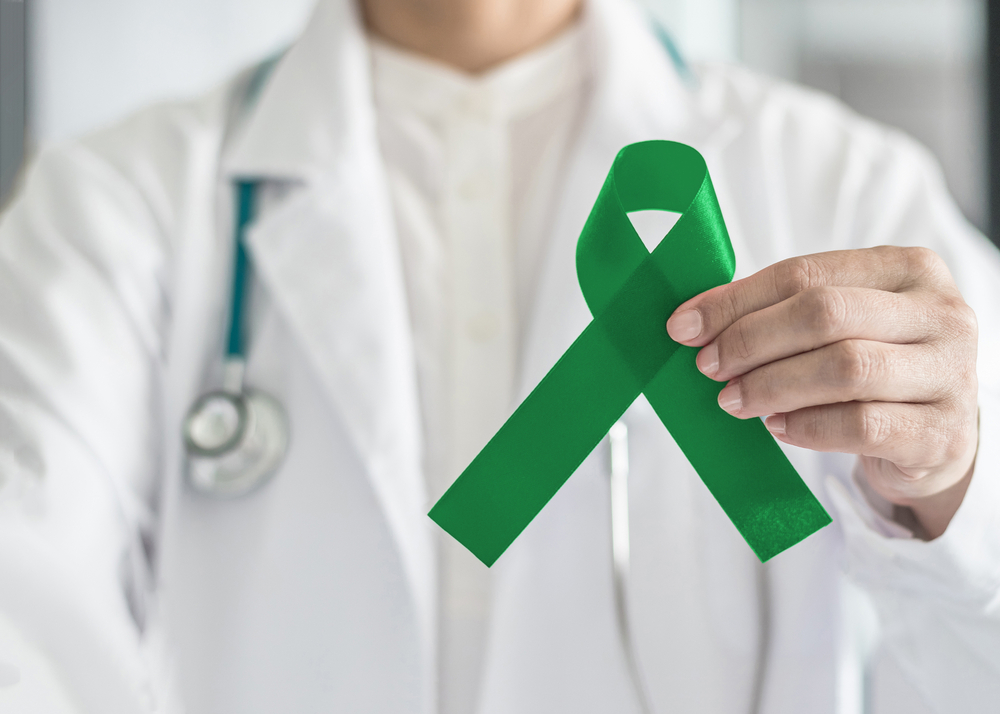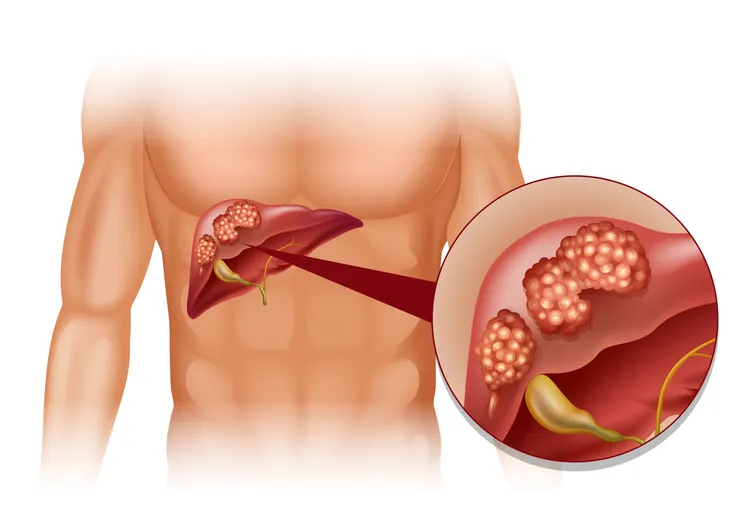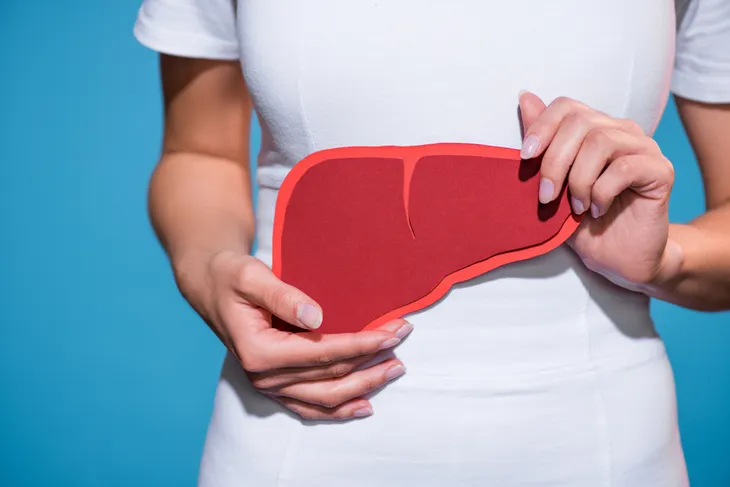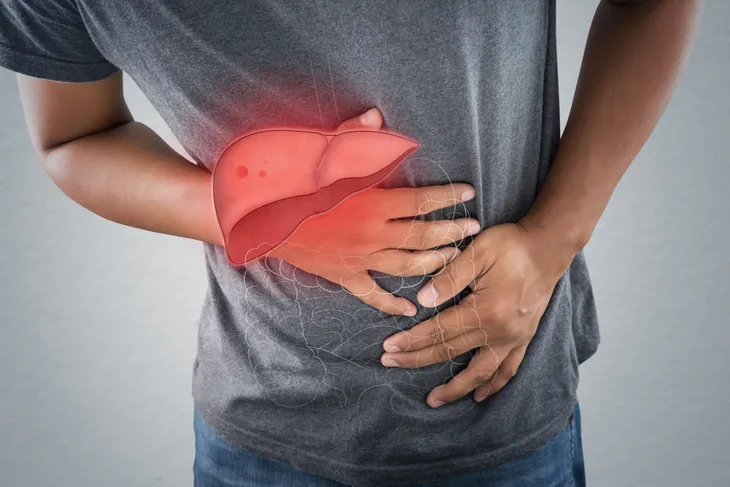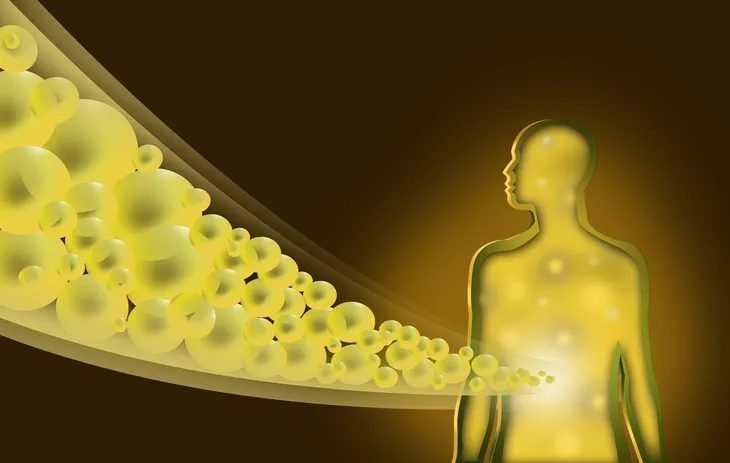The liver is the body’s largest intestinal organ. Sitting just beneath the right ribs and right lung, it plays an important role in our overall health. It is responsible for breaking down and storing nutrients, creating proteins that clot blood, delivers bile to the intestines and breaks down toxic wastes in the blood.
According to the Canadian Cancer Society, cells in the liver sometimes change or behave irregularly. When this happens it usually leads to benign tumors, such as hemangiomas. These tumors aren’t always cancerous, but sometimes, changes to liver cells can result in cancer. Unfortunately, the liver is more susceptible to cancer because of its function as the body’s filter. Since all blood in the body passes through the liver, it’s accessible to any cancer cells in the bloodstream. To get better informed on liver cancer, take a look at this list on the main causes and symptoms of liver cancer…
What is Liver Cancer?
Approximately 30,600 people are diagnosed with liver cancer every year according to the American Cancer Society. The prevalence of this cancer is due to the role the liver plays in our bodies. As the largest gland in your entire body, your liver is responsible for filtering and eliminating toxins, stockpiling vitamins and essential nutrients for energy, generating the necessary proteins for blood clotting, and producing bile for efficient digestion.
Acting as a filter, the liver can easily become cancerous—with cancer either taking root in the liver and spreading to other organs (Primary Liver Cancer)—i.e., the colon, pancreas, stomach, breasts, and lungs. Or cancer can travel from another area of the body and affecting the liver (Metastasized Cancer) as toxins are filtered through.
The average person diagnosed with liver cancer is over 60-years-old. More men than women are affected.
Common Causes of Liver Cancer
Although there is no direct cause of liver cancer per say; there are a number of common risk factors that are linked to the development of liver cancer, including:
- Age—liver cancer most often strikes those 67-years of age or older.
- Gender—men are twice as prone to liver cancer vs. women, with 22,720 new cases in men and 7,920 cases in women annually.
- Existing Conditions—such as hepatitis B, hepatitis C, cirrhosis of the liver, obesity, and diabetes linked to the development of liver cancer. For example, 5-percent of cirrhosis patients develop liver cancer.
- Lifestyle—for instance smokers and those who abuse alcohol tend to be more prone to developing liver cancer.
- Heredity—individuals with a family history of liver cancer are more likely to develop the disease.
Symptoms of Liver Cancer
The most frightening aspect of liver cancer is that during the early stages symptoms are often non-existent or very subtle. However, as with most types of cancer, early liver cancer diagnoses is vital to survival.
Here are five of the more subtle yet telltale symptoms of liver cancer…
Sudden Weight Loss
When we lose weight thanks to the efforts of diet and exercise, most of us would jump up and down in celebration. However, the sudden and unexplained weight loss that comes from the presence of liver cancer is not due to changes in diet or exercise or even heightened levels of stress. If you notice a sudden change in your weight, it often indicates an underlying health issue and should be brought to your doctor’s attention immediately.
Unexplained Changes to Appetite
The persistent abdominal pain and swelling that often results from liver cancer will cause rolling changes in a patient’s appetite. For instance, you may notice you get extremely fullness even following small meals to the point where you feel uncomfortable. You may also develop anorexia, an eating disorder due to your constant lack of appetite and painful satiety.
Liver Inflammation
The presence of liver cancer will often cause the liver and abdomen to swell painfully. This inflammation is often caused by a tumor mass in the liver that causes the actual liver gland and surrounding tissues to bulge so much that it’s visible and very tender.
Jaundice
Jaundice is a condition caused by the excess of bilirubin, a dark yellow or brown colored waste substance that causes the yellowing of the skin and whites of the eyes when it’s not eliminated from the bloodstream. Bilirubin will remain in the bloodstream to excess in those patients with inefficient working livers.
Referred Pain
Oftentimes when a vital organ or gland in the body is damaged, we will experience pain in a different part of the body. This condition is known as referred pain, and can be present in those with liver damage. For instance, a swollen liver (located on the right side of the body under the ribs) may result in an achy right shoulder or back because the liver has distended so much that it’s pressing on the shoulder and back nerves.
